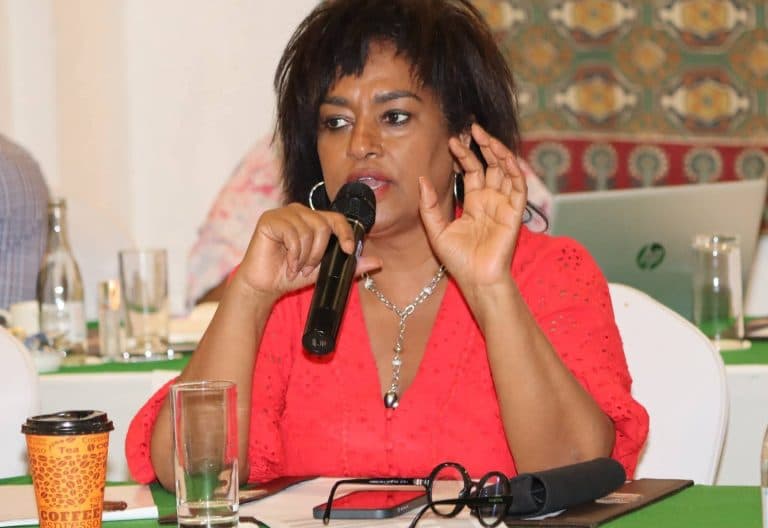We're loading the full news article for you. This includes the article content, images, author information, and related articles.
Nairobi Woman Representative Esther Passaris views the colloquial term 'Shosh' as a 'badge of honour,' challenging ageist stereotypes often directed at women in Kenyan public life and sparking a national conversation on respect for older women.

Nairobi, Kenya – Nairobi Woman Representative Esther Passaris has publicly embraced the colloquial term 'Shosh,' often used to refer to grandmothers, asserting it as a 'badge of honour' rather than an insult. Her remarks, made as she approaches her 61st birthday this month, have ignited a broader discussion in Kenya concerning ageism and gendered language in political discourse.
Passaris, a prominent figure in Kenyan politics, highlighted a perceived double standard where older men are often accorded respect with titles like 'Mzee,' while older women face mockery through terms such as 'Shosh.' She stated on X (formerly Twitter) that being called 'Shosh' signifies a life lived with experiences, struggles, and triumphs.
The use of descriptive and often metaphorical language is a common feature in Kenyan political discourse, frequently employed to shape public perception and influence voters. Terms, at times, carry underlying social or political connotations. Passaris's reinterpretation of 'Shosh' seeks to reclaim a term that can be used disparagingly, transforming it into a symbol of wisdom and resilience. This move aligns with her consistent advocacy for women's empowerment and challenging societal norms.
Esther Passaris, born on October 20, 1964, in Mombasa, has had a notable career as a social entrepreneur, philanthropist, and politician. She has served as the Nairobi County Woman Representative since 2017, a position she was re-elected to in 2022.
While there are no specific laws in Kenya directly addressing ageist language in political discourse, the Constitution of Kenya promotes equality and prohibits discrimination. Public debate around such terms contributes to shaping societal attitudes and could inform future policy discussions on respectful public engagement. Political leaders, through their public statements, often influence the tone and direction of national conversations.
Passaris's stance has resonated with many Kenyans, particularly women, who have long navigated societal expectations and stereotypes related to age. Her message encourages a shift in perspective, urging society to celebrate ageing as a journey of wisdom, resilience, and grace.
However, Passaris has also faced criticism in the past regarding various statements and legislative proposals, including those related to protest laws. This highlights the complex nature of public opinion and the scrutiny faced by public figures in Kenya.
The ongoing discussion around terms like 'Shosh' underscores the need for respectful and inclusive language in public discourse. The perpetuation of ageist or sexist language can undermine the participation of women in leadership and contribute to a culture of disrespect. Conversely, re-framing such terms, as Passaris has attempted, could empower individuals and foster a more appreciative view of older generations' contributions.
While Passaris's statement has been widely reported, the long-term impact on public perception and the broader political lexicon remains to be seen. The effectiveness of reclaiming a term often used negatively depends on sustained public engagement and a shift in cultural attitudes. There is also an ongoing debate about the extent to which such linguistic redefinitions can genuinely alter deeply ingrained societal biases.
Esther Passaris is set to celebrate her 61st birthday in October 2025. Her recent statements are part of an ongoing conversation about respect and representation in Kenyan politics.
Observers will be watching to see if Passaris's redefinition of 'Shosh' gains wider acceptance and if other public figures adopt similar approaches to challenge ageist and sexist language. The evolution of political discourse in Kenya, particularly concerning gender and age, will be a key area to monitor.
Keep the conversation in one place—threads here stay linked to the story and in the forums.
Sign in to start a discussion
Start a conversation about this story and keep it linked here.
Other hot threads
E-sports and Gaming Community in Kenya
Active 9 months ago
The Role of Technology in Modern Agriculture (AgriTech)
Active 9 months ago
Popular Recreational Activities Across Counties
Active 9 months ago
Investing in Youth Sports Development Programs
Active 9 months ago
Key figures and persons of interest featured in this article